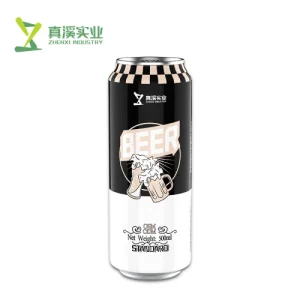The energy drink market continues to evolve rapidly, responding to consumer demands for greater variety, healthier options, and innovative ingredients. As of 2021, this sector was valued at approximately $57.4 billion globally, with expectations to grow significantly in the coming years. Here’s a look at the latest trends and innovations that are reshaping the world of energy drinks.
Natural and Organic Ingredients
Consumers are increasingly health-conscious, prompting a shift towards natural and organic ingredients in energy drinks. Recent launches in the market have seen a 30% increase in products claiming to be made with all-natural ingredients. These beverages often feature plant-based stimulants like guarana, green tea, and yerba mate, which are not only effective but also provide antioxidants and other health benefits.
Reduced Sugar and Calorie Content
In line with the trend towards healthier lifestyles, there is a growing demand for low-sugar and zero-calorie energy drinks. The market has seen a 25% increase in the introduction of such products in the last year alone. These drinks often use natural sweeteners like stevia to appeal to health-conscious consumers without sacrificing taste.
Functional Additions
Beyond just providing a boost of energy, new products in this category are including additional functional benefits. For instance, some energy drinks now feature added electrolytes for hydration, protein for muscle recovery, or vitamins and minerals to support overall health. This approach aims to appeal to active individuals who are looking for more than just a caffeine boost from their beverages.
Innovative Flavors
Flavor innovation remains a key driver in the energy drink market, with exotic and unusual flavors capturing consumer interest. Recent additions include combinations like cucumber lime, spicy cherry, and salted watermelon. These innovative flavors help brands stand out on shelves and cater to a younger audience seeking variety and novelty.
Focus on Mental Performance
A newer trend in the energy drink sector is the emphasis on cognitive benefits. Products are increasingly incorporating nootropic ingredients like L-theanine, ginkgo biloba, and bacopa monnieri that are touted to improve focus, memory, and mental clarity. This shift reflects a broader consumer interest in holistic wellness, including mental as well as physical health.
Sustainability in Packaging
As environmental concerns continue to gain prominence, energy drink brands are also focusing on sustainable packaging solutions. This includes the use of recycled materials, biodegradable packaging, or more efficient packaging designs that reduce environmental impact. Consumers appreciate brands that demonstrate a commitment to sustainability, which not only impacts purchase decisions but also enhances brand loyalty.
Targeted Marketing Strategies
Finally, brands are developing more targeted marketing strategies to reach specific consumer segments. For example, gaming energy drinks have become popular, offering formulations designed to enhance concentration and stamina during long gaming sessions. This niche marketing approach allows brands to develop deeper connections with specific communities.
For those in the beverage industry, staying ahead of these trends is crucial. Partnering with a knowledgeable beverage supplier that understands these evolving preferences and can provide the necessary ingredients and innovation is essential for success. The energy drink market remains dynamic, and brands that can quickly adapt to consumer preferences will thrive.
